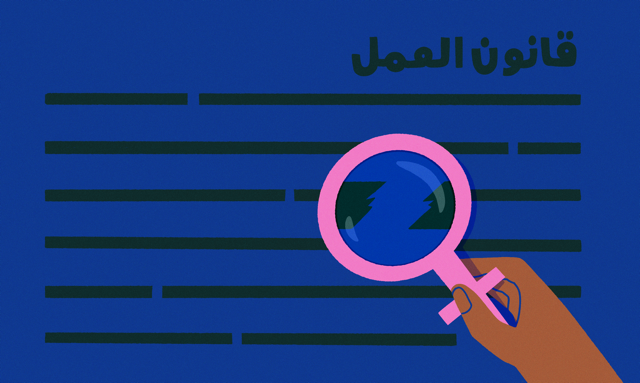Jullebee Ranara's murder is a failure of state and society
While extreme violence against migrant women domestic workers persists, Kuwait flounders to put protection mechanisms in place

Jullebee Ranara, a 34-year-old domestic worker from the Philippines, was raped, killed, burnt, and buried by the 17-year-old son of her Kuwaiti employers on 21 January 2023. Authorities identified and arrested the perpetrator within 24-hours of finding Ranara’s body, which was buried in Al-Salmi desert, on the outskirts of Kuwait. Autopsy reports revealed Ranara had been four months pregnant at the time of her murder. During interrogations, the perpetrator admitted he had sexually assaulted Jullebee, and murdered her when he found out that she became pregnant.
Ranara’s murder triggered outrage in Kuwait and the Philippines, with many social media users and media commentators condemning the act and criticising Kuwait’s inactive Family Protection Law that intends to combat violence against women. Previously, online users expressed similar outrage against officials and responsible agencies for neglecting workers rights. However, more often than not, these campaigns soon become overshadowed by other news. What is missing is consistency in applying pressure on policy-makers to put an end to the injustice being endured by marginalised groups in Kuwait as a whole. Social media can only become a tool for change when campaigns are not viewed as trends, but the pillars of grassroots commitments to address the legislative and enforcement gaps that result in human rights abuses.
Additionally, the disappointing silence from influential local women’s rights groups on issues pertaining to female domestic workers raises concerns about the lack of intersectionality in civil society advocacy, which excludes the large population of women who fall outside the scope of ‘Kuwaiti women’. Advocacy should instead extend to women across all races, classes and nationalities if it is feminism — not citizenship — that is leading the cause.
This was not an isolated incident of domestic violence, as Kuwaiti officials repeatedly claim. There have been several cases of severe violence against domestic workers, including many Filipino workers. The Philippines has been most resolute in its response in the past. In 2018, diplomatic relations between both states came to a head, and the Philippines banned the deployment of domestic workers to Kuwait, following the murder of Joanna Daniela, whose body was found in a freezer. The ban was partially lifted months later following a protection agreement signed by both countries. Nevertheless, these heinous crimes persist, not only against domestic workers, but women across Kuwait as a whole. Since these cases occur mainly within the private sphere of the household, many remain undocumented and unspoken of, justified by the cultural — and constitutional — argument that this sphere is “inviolable.”
The recurrence of such events call into question Kuwait’s local legislation, in addition to its positive obligations within international human rights law, and its responsibility to prevent, prosecute, and punish acts by non-state actors that result in gender-based violence. The frequency of such inhumane crimes points to legislative and administrative gaps in Kuwait’s preventative measures. Having previously been considered pioneers in the region in legislating Domestic Workers Law No. 68 of 2015, Kuwait today falls behind in enacting rights to address the violations endured by domestic workers. Instead of strengthening and solidifying proactive measures, the country resorts to weak, reactive actions to combat violence. The state has neglected domestic violence faced by women in Kuwait at large, as the still inactivated Family Protection Law No. 16 of 2020 reflects, and its negligence of domestic workers' rights is even more acute: the Family Protection Law, for instance, does not explicitly mention female domestic workers, despite the prevalence of crimes against them.
Article 38 of Kuwait’s Constitution, which states that ‘the home is inviolable’ poses an additional challenge to addressing violence by non-state actors. With most cases occurring within the private sphere, and complaints mechanisms for domestic workers proving to be inaccessible, or ineffective, there is an overdue expectation under international law on Kuwait to revisit its legislation.
However, neither Kuwait nor any of the other Gulf countries in which domestic workers endure similar rights abuses, have signed the International Convention on the Protection of the Rights of All Migrant Workers and Members of Their Families (1990). They therefore can only be held accountable towards their obligations under international human rights instruments, such as the Convention on the Elimination of All Forms of Discrimination Against Women (CEDAW). These instruments, nevertheless, identify the responsibility of states to ensure equal, accessible, and adequate access to protective remedies within the law and fulfil objectives of the rule of law. Jullebee Ranara, Rosella, and Padma are three of the many migrant workers whose cases triggered national and international outrage in recent memory. However, not enough has been done on a local level to address any of the rights violations endured by migrant women, be it wage theft, poor working conditions, or the most extreme forms of physical abuses. With female domestic workers accounting for 30% of all employment in Kuwait, the full realisation of their rights as women, workers, and humans remains unmet.




